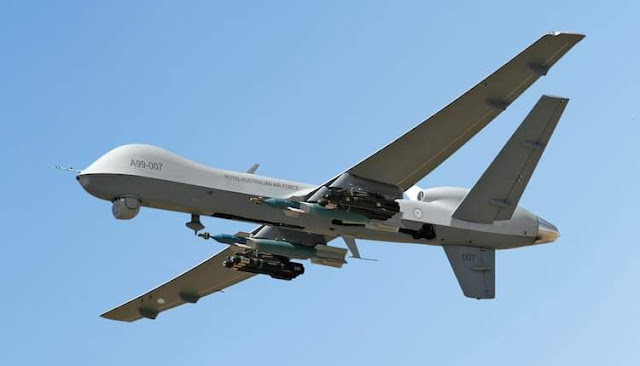 |
| The Mogami (FFM-1) during sea trials in October 2021. Photo c/o Naval News. |
Japanese shipbuilder Mitsubishi Heavy Industries (MHI) delivered the lead ship of the Mogami-class frigates to the Japan Maritime Self Defense Force (JMSDF), which in turn commissioned the new ship as the JS Mogami (FFM-1).
The delivery and commissioning ceremonies were held on 28 April 2022 at MHI's shipyard in Nagasaki, with the ship proceeding to its assignment with the JMSDF's Mine Warfare Force homeported at Yokosuka Naval Base.
Despite the ship being the lead ship of the class, it is actually the second ship to be commissioned with the JMSDF, being overtaken by the second ship of the class JS Kumano (FFM-2) which was commissioned last March 2022.
This was due to delays encountered by MHI in construction the Mogami.
The new Mogami-class frigates were designed with efficiency and high level of automation in mind, together with a more compact design for reduced construction cost,and stealthy hull and superstructure design for reduced cross-section against radar detection.
It has a length of 132.5 meters, a width of 16.3 meters, and has a crew of 90 officers and sailors.
The ship has a maximum speed of more than 30 knots, and powered by a Combined Diesel and Gas (CODAG) propulsion configuration with two MAN 12V28/33D STC diesel engines and a Rolls-Royce MT30 gas turbine engine.
It is armed with a BAE Systems Mk.45 Mod 4 127mm naval gun, two Japan Steel Works RCWS for 12.7mm machine guns, a 16-cell Mk. 41 VLS, an 11-cell Raytheon SeaRAM CIWS, and two quadruple launchers for MHI Type 17 anti-ship missiles.
The Mogami-class are to replace the JMSDF's ageing fleet of Abukuma-class destroyer escorts that have been in service since the late 1980s.
[1] Naval News
[2] The Diplomat
[3] Asia Pacific Defense Journal







